We need your help to MONITOR and STOP the spread of Stony Coral Tissue Loss Disease (SCTLD) in The Bahamas. The Perry Institute for Marine Science has created this educational video about how to identify SCTLD, report sightings, and disinfect gear/boats if you come in contact with it. Report SCTLD sightings at https://www.perryinstitute.org/reports… and email us with questions at coral@perryinstitute.org. There is a lethal coral disease spreading fast in the Caribbean and it’s called Stony Coral Tissue Loss Disease, or SCTLD. The exact pathogen causing the disease is unknown, but it’s threatening over 20 stony coral species and has high mortality rates; rates of more than 80% for some species. Researchers suspect that SCTLD is caused by bacterial pathogens that can be transmitted to other corals through direct contact or water circulation. The disease was first reported in The Bahamas in late 2019 off Grand Bahama and has recently been confirmed in New Providence. We are calling all divers, fishermen, and ocean activists in The Bahamas to help us protect our coral reefs! We hope you will take action with us to combat this disease and preserve the beauty of Bahamian reefs for future generations.
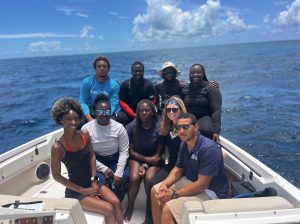
Become a PADI Dive Instructor in The Bahamas | Conservation-Focused IDC
Become a PADI Dive Instructor in The Bahamas | Conservation-Focused IDC | Perry Institute for Marine Science Education & Training Ready to take your diving skills to the next level
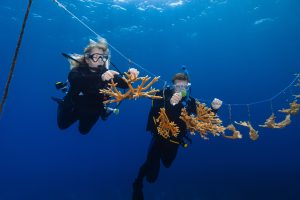
Stream2Sea Coral Care: The World’s First Reef-Positive Sunscreen
Stream2Sea Coral Care: The World’s First Reef-Positive Sunscreen | Perry Institute for Marine Science Conservation Partners Stream2Sea Coral Care: The World’s First Reef-Positive Sunscreen Discover why PIMS has partnered with

Build a Coral Reef for the Holidays | PIMS x Partanna
PIMS is partnering with Partanna to build a 100m² carbon-negative reef. Rick Fox is matching donations up to $25k. Help us build a sanctuary for the future.
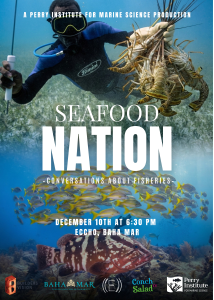
“Seafood Nation” Documentary Premiere Explores the Heart of Bahamian Culture and the Future of Fisheries
NASSAU, The Bahamas | December 5, 2025 – From the bustling stalls of Potter’s Cay to family kitchen tables across the archipelago, seafood is far more than just sustenance in
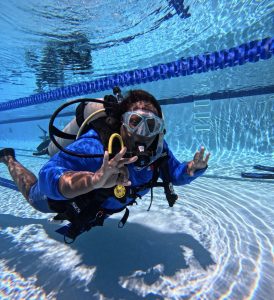
PIMS and Disney Conservation Fund Partner to Train 19 Government Divers
PIMS dive training in Nassau strengthened national coral restoration capacity across government agencies. Bahamas Dive Training Builds National Coral Restoration Capacity Last fall, between the months of September and October,
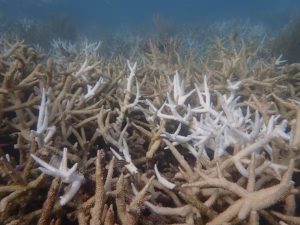
Florida’s Coral Reef Crossed a Line: What Functional Extinction Really Means for Elkhorn and Staghorn Corals
Reefs didn’t just bleach. They functionally vanished in one summer. A new Science study co-authored by researchers from the Perry Institute for Marine Science (PIMS) has found that Florida’s two


